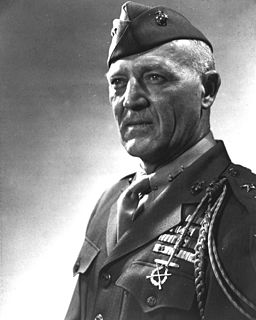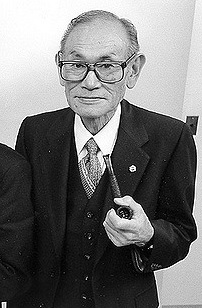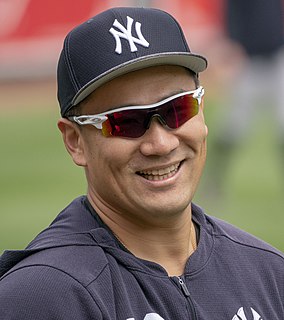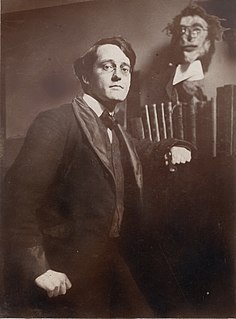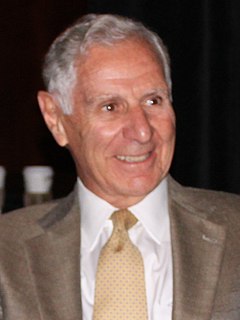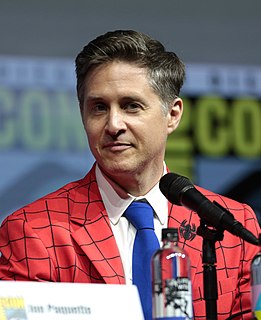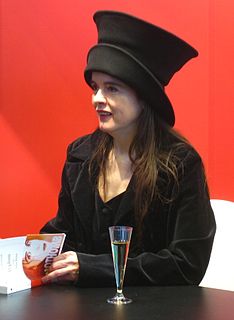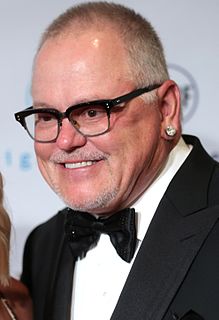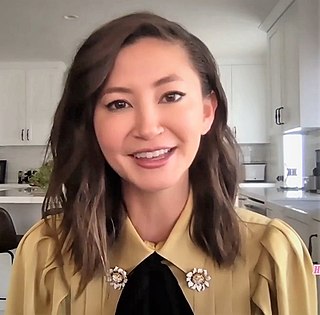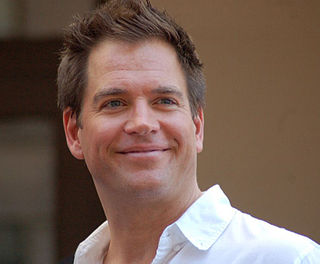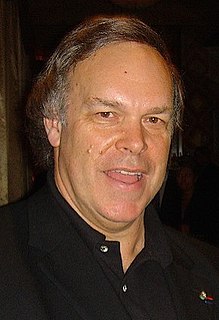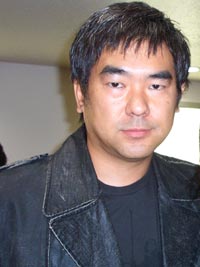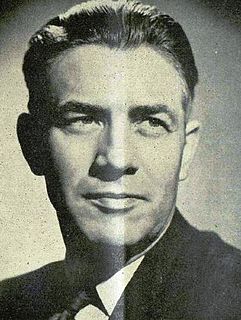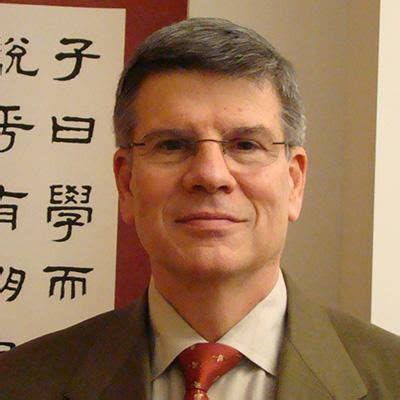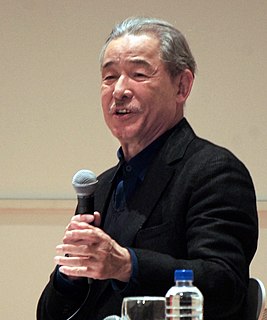Top 1200 Japanese Quotes & Sayings - Page 20
Explore popular Japanese quotes.
Last updated on September 19, 2024.
I worked at a vintage guitar store, and the owner had ties with a lot of Japanese manufacturers and U.S. manufacturers that were beginning to pop up. So I was ordering parts and screwing them together and contacting local luthiers to finish and do frets and things, and I had put together two guitars, a red one and a black one.
Another British study discovered that average eight-year-olds were better able to identify characters from the Japanese card trading game Pokemon than native species in the community where they lived: Pikachu, Metapod, and Wigglytuff were names more familiar to them than otter, beetle, and oak tree.
Being hapa, or more specifically, half-Japanese half-Euro mutt (English, Irish, Scottish, Dutch, French, Welsh, German. . .in case you were wondering), has definitely helped shape who I am. It's very cool to get to identify and learn about all these unique cultures and I think it's helped put the world in perspective.
Meaning can be usually be approximated, but often by sacrificing style. When I review my translations into Spanish, that's what I'm most concerned with, reading the sentences aloud in Spanish to make sure they sound the way I want them to. To be honest, I much prefer being translated into Greek or Japanese; in those cases, you have no way of being involved, and no pressure.
I will not offer my thoughts on what Japan could and should have done, this is none of my business, it is the business of the Japanese leadership. But we should understand how practicable all our agreements are as a whole given the allied obligations Japan has assumed, how much independence there is in making those decision, and what we can hope for, what we can ultimately arrive at.
You see, it's been our misfortune to have the wrong religion. Why didn't we have the religion of the Japanese, who regard sacrifice for the Fatherland as the highest good? The Mohammedan religion [Islam] too would have been more compatible to us than Christianity. Why did it have to be Christianity with its meekness and flabbiness?
Two words guided the making of 'Babel' for me: 'dignity' and 'compassion.' These things are normally forgotten in the making of a lot of films. Normally there is not dignity because the poor and dispossessed in a place like Morocco are portrayed as mere victims, or the Japanese are portrayed as cartoon figures with no humanity.
In my generation, this was not the first occasion when the strong had attacked the weak.Communism was acting in Korea just as Hitler, Mussolini, and the Japanese had acted ten, fifteen, and twenty years earlier. I felt certain that if South Korea was allowed to fall, Communist leaders would be emboldened to override nations closer to our own shores.
Now and then the fantastic shadows of birds in flight flitted across the long tussore-silk curtains that were stretched in front of the huge window, producing a kind of momentary Japanese effect, and making him think of those pallid, jade-faced painters of Tokyo who, through the medium of an art that is necessarily immobile, seek to convey the sense of swiftness and motion.
I have mastered many things in my life. Navigating the streets of London, speaking French without an accent, dancing the quadrille, the Japanese art of flower arranging, lying at charades, concealing a highly intoxicated state, delighting young women with my charms..." Tessa stared. "Alas," he went on, "no one has ever actually referred to me as 'the master,' or 'the magister,' either. More's the pity.
When Japanese went to Hawaii they would go straight and buy the same thing that they would buy in Japan. They just got it cheaper, which they liked. And so they would still eat the red bean ice cream or the green tea ice cream, but they didn't really take advantage of the variety and it wasn't clear that they cared.
The Japanese eat, sleep, and breathe golf; the only thing they don't do is actually play it, because to get on a course, you have to make a reservation roughly 137 years in advance, which means that by the time you actually get to the first tee you are deceased. Of course, in golf this is not really a handicap.
Study the great brush drawings of the Chinese and Japanese... When we try to imitate their conventions for perspective, form and texture we lose the content, because those artists were part of an ancient tradition. Our tradition changes rapidly, our schools of thought come to fruition quickly and decay again. We see differently.
When we first started, in the early Eighties, we had some crappy guitars - Japanese knockoffs that wouldn't hold standard tuning. Later, we'd shove drumsticks or screwdrivers under strings to scheme new noises, sure. But initially, open tuning was a technique used to make our cheap guitars sound better. It wasn't academic or conceptual.
There have been various pesticides that have been properly tested, that have been registered and then have been used and later on they've been discoveredthat they can create harm, like in the case of this Oftanol that was being used here (in Sacramento, against the Japanese beetle). Now they find that it can cause problems at least to animals. So we stopped using it.
Mike and I were really interested in other epic 'Legends & Lore' properties, like 'Harry Potter' and 'Lord of the Rings,' but we knew that we wanted to take a different approach to that type of genre. Our love for Japanese Anime, Hong Kong action & Kung Fu cinema, yoga, and Eastern philosophies led us to the initial inspiration for 'Avatar.'
We walked at night towards a cafe blooming with Japanese lanterns and I followed your white shoes gleaming like radium in the damp darkness. Rising off the water, lights flickered an invitation far enough away to be interpreted as we liked; to shimmer glamourously behind the silhouette of retrospective good times when we still believed in summer hotels and the philosophies of popular songs.
In 2000 the then Prime Minister of Japan [Yoshir? Mori] asked me to return to this process, this conversation, these talks, and to do so, incidentally, on the basis of the 1956 declaration. I agreed. Since then we have conducted dialogue in this regard but I cannot say that our Japanese partners and friends have remained within the limits of the 1956 declaration.
Of course you have memories, and these memories are convincing. But it's really at the moment when I write them down - when I write about my relationship with that Japanese boy in Ni d'Eve, Ni d'Adam - that they reach a degree of reality which is incandescent, that I've really conquered a story, understood it and feel that it is really part of me.
In a way, 'Sin City''s designed to be paced somewhere between an American comic book and Japanese manga. Working in black and white, I realized that the eye is less patient, and you have to make your point, and sometimes repeat it. Slowing things down is harder in black and white, because there isn't as much for the eye to enjoy.
In a way, 'Sin City's designed to be paced somewhere between an American comic book and Japanese manga. Working in black and white, I realized that the eye is less patient, and you have to make your point, and sometimes repeat it. Slowing things down is harder in black and white, because there isn't as much for the eye to enjoy.
I've always disliked kamikazes, that is, people who commit suicide in order to kill others. Starting with the Japanese ones from World War II. I never considered them Pietro Miccas who torch the powder and go up with the citadel in order to block the arrival of the enemy troops at Torino. I never considered them soldiers.
Do you like my working persona?" Saiman asked softly. "An aesthetically pleasing combination of intelligence and elegance, wouldn't you say?" Aren't we pleased with ourselves. "Are you Chinese, Japanese, half-white? I can't tell, your features are neither here nor there." "I'm inscrutable, mysterious and intellectual." He forgot conceited. "Did you have any trouble getting that ego through the door?" Saiman didn't even blink. "Not in the least.
I was born just after the end of World War II, and with my friends in our little suburban backyards in New Jersey, we used to play war a lot. I don't know if boys still play war, they probably do, but we were thrusting ourselves into recent history and we were always fighting either the Nazis or the Japanese.
One thing that does seem to me to be fairly consistent is that presidents who restrict civil liberties, even in wartime, are usually judged harshly for it. So most people agree that one of the worst stains on the reputation of FDR, who is widely considered a great president, is the internment of Japanese Americans during World War II. Likewise, Lincoln is judged harshly for the suspension of habeas corpus.
Shamefully, all of us have wanted revenge on someone at some point for something. I've lived since before man and buffalo roamed this small planet. I have survived the beginning, bloom, and death of countless enemies, civilizations, and people. And the one truth I have learned most during all of these centuries is the old Japanese proverb. If you sit by the river long enough, you will see the body of your enemy float by.
Contrary to a tenacious myth, France is not owned by California pension funds or the Bank of China, any more than the United States belongs to Japanese and German investors. The fear of getting into such a predicament is so strong today that fantasy often outstrips reality. The reality is that inequality with respect to capital is a far greater domestic issue than it is an international one.
Traditional Chinese art looked at the Earth from a Confucian mountain top; Japanese art looked closely around screens; Italian Renaissance art surveyed conquered nature through the window or door-frame of a palace. For the Cro-Magnons, space is a metaphysical arena of continually intermittent appearances and disappearances.
Fashion is made up of paradoxes. There was a key moment in fashion. When the Japanese first arrived - Comme des Garçons, Yohji Yamamoto, and all - I have to humbly admit that I didn't understand the importance of it at all. It was Jean-Jacques Picart who explained it to me. They had a huge influence in that they showed that aestheticism could be different from prettiness, that there was beauty and that beauty was beyond pretty.
I brought in two genius guys from Korea. Guys who did my favorite movies like Oldboy and The Man from Nowhere. It was fun working with them. Even though they don't speak Japanese and I don't speak Korean, I knew from day one we were speaking the same language because they love my work and I love theirs. We instantly connected. There was zero frustration.
The Japanese don't write in alphabetic writing; they write in pictographs. So they never became visual, they stayed in the oral world, which is, everything is part of reality. Which means that they can accept any new technology? - ?it's not threatening to them, and they can still continue to maintain their traditional culture, even in the face of high technology.
Again and again I've taken quick glances and then for some reason I've got to sit before a picture waiting and it's opened up like one of those Japanese flowers that you put into water and something I thought wasn't worth more than a casual, respectful glance begins to open up depth after depth of meaning.
We cannot escape the conclusion that because of performance in the pre-existence some of us are born as Chinese, some as Japanese, some as Indians, some as Negroes, some as Americans, some as Latter-day Saints. These are rewards and punishments, fully in harmony with His established policy in dealing with sinners and saints, rewarding all according to their deeds
Gardeners may create order briefly out of chaos, but nature always gets the last word, and what it says is usually untidy by human standards. But I find all states of nature beautiful, and because I want to delight in my garden, not rule it, I just accept my yen to tame the chaos on one day and let the Japanese beetles run riot on the next.
To serve as prime minister while being too mindful of the approval rating is like serving as a prime minister on a roller coaster. What is important, I believe, is that I really act on promises that I make and leave results. Leave a track record and show that to the Japanese public, who will, at the end of the day, I hope, appreciate it.
A lot of my books have been that way. My World War II thriller about Sarin gas [Black Cross] was published two months before the Sarin attack in the Japanese subway. There are very weird coincidences out there. And I do have one surefire plot I have not and probably never will write, because of my fear someone will carry it out.
I remember I was really into this British band, The Vapors, with that song "Turning Japanese." I thought that they were really next level genius cryptic weirdos. And then I realized when I got older they are just using a lot of British words, and I didn't know what they meant. But I thought, Oh, they are making up their own language.
I really love a lot of Japanese music, like Ryuichi Sakamoto and this guy I got really into, Tatsuro Yamashita. When I was a little younger, I thought synthesizers meant Kraftwerk, cold, robotic, weird, Autobahn. But these guys are having a lot of fun on these things. Sometimes. Sometimes it's very somber. They could go either way.
I was very lucky. I was just finishing my PhD at Cambridge in 1981. This opportunity came up because whaling was drawing to an end. There was the prospect of a moratorium, and one of the arguments that was brought up, especially by Japanese whalers, was that, if we didn't have whaling, we would know nothing of whales. All the science depends on having dead animals, they argued, so that's one of the benefits of the whaling industry.
If Mr. Obama could walk across the Peace Bridge in Hiroshima - whose balustrades were designed by the Japanese-American sculptor Isamu Noguchi as a reminder both of his ties to East and West and of what humans do to one another out of hatred - it would be both a real and a symbolic step toward creating a world that knows no fear of nuclear threat.
